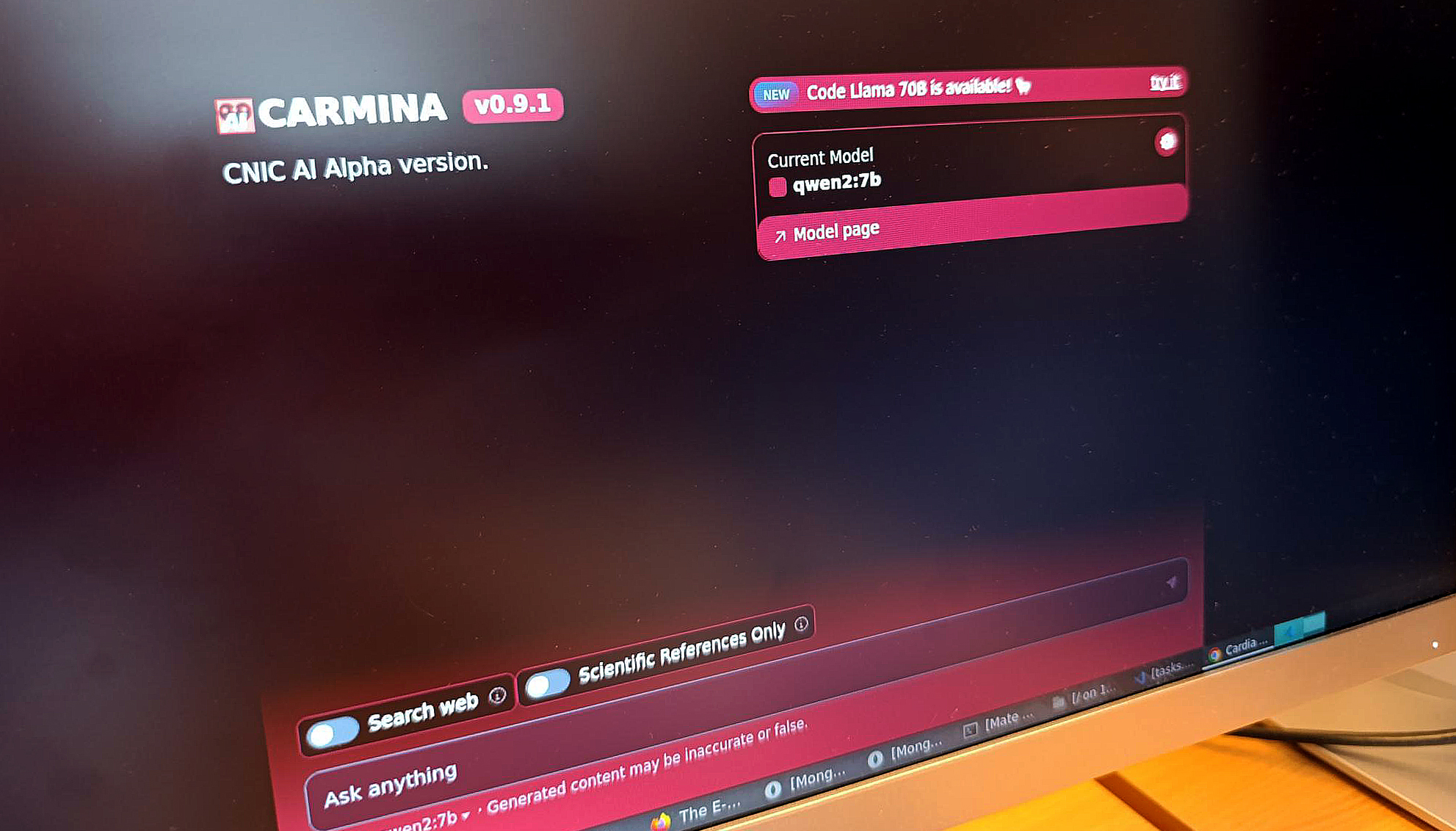CARMINA: The AI model for cardiovascular research developed by the CNIC
The system provides specialised answers to biomedical questions, ensuring data privacy by operating exclusively within the CNIC
Researchers from the Computational Systems Biomedicine group at the Spanish National Cardiovascular Research Centre (CNIC) are developing CARMINA, an artificial intelligence (AI) assistant designed to support cardiovascular research.
It is a system based on language models and information retrieval that provides specialised answers to biomedical questions, ensuring data privacy by operating exclusively within the CNIC. This ensures that users' conversations and data will not be used for commercial purposes or exploited externally, unlike commercial models such as ChatGPT, DeepSeek and Gemini.
To evaluate CARMINA's performance, RAGQA, a complementary internal initiative that measures the accuracy, completeness and clarity of AI-generated responses, has been launched. Specifically, this project compares CARMINA's answers with those provided by professionals, including cardiologists and researchers, with the aim of improving its capabilities and optimising its application in biomedical research.
"CARMINA represents a step forward in the integration of AI in biomedical research. Its development and rigorous evaluation ensure that this tool can bring real value to the scientific and clinical community," says Juan Ignacio Álvarez, researcher in the CNIC's Computational Systems Biomedicine group and researcher in the European project JACARDI (Joint Action on Cardiovascular Disease and Diabetes), which aims to reduce the burden of cardiovascular disease and diabetes.
How to participate?
The CNIC invites cardiology residents, clinicians and researchers to participate in the study and contribute to the development of CARMINA. Your expertise is essential to refine the accuracy and relevance of the model in clinical and scientific contexts. Participation requires only 10-30 minutes and any contribution, even partial, is very valuable.
More information: https://bioinfo.cnic.es/RAGQA/info/
Interested individuals can complete one or more phases, although the essential one for researchers is Phase 2. If you participate in all of them, they must be completed in order:
Phase 1 (Optional, ~15 min): Answer three technical questions with references.
Phase 2 (Fundamental, ~10 min): Evaluate answers and distinguish between those generated by AI and those provided by humans.
Phase 3 (Optional, ~5 min): Evaluate AI-generated responses.
The developers explain that expertise in all areas of cardiology is not required. In addition, participants can consult online resources and references to inform their answers. ‘The more answers collected, the more robust the study will be,’ say the researchers, who include Daniel Jiménez Carretero, also a member of the CNIC Bioinformatics Unit.
‘CARMINA and RAGQA are part of the CNIC's commitment to the integration of artificial intelligence in biomedical research, ensuring that these technologies are developed and evaluated with the utmost scientific rigour,’ says Fátima Sánchez Cabo, Principal Investigator of the CNIC's Computational Systems Biomedicine group.











